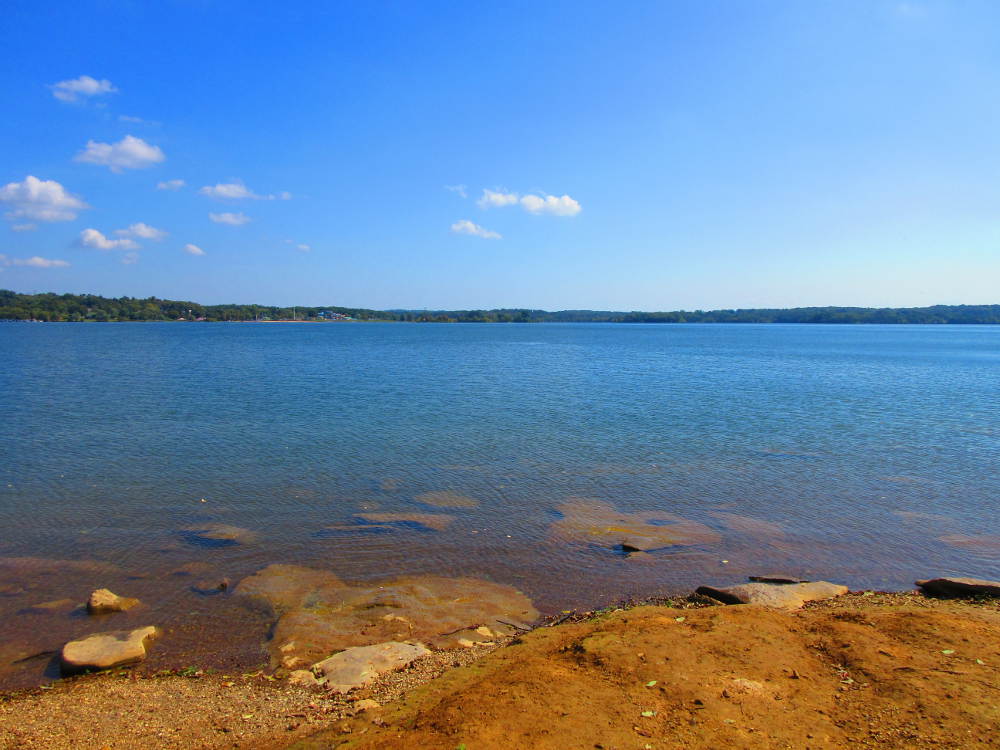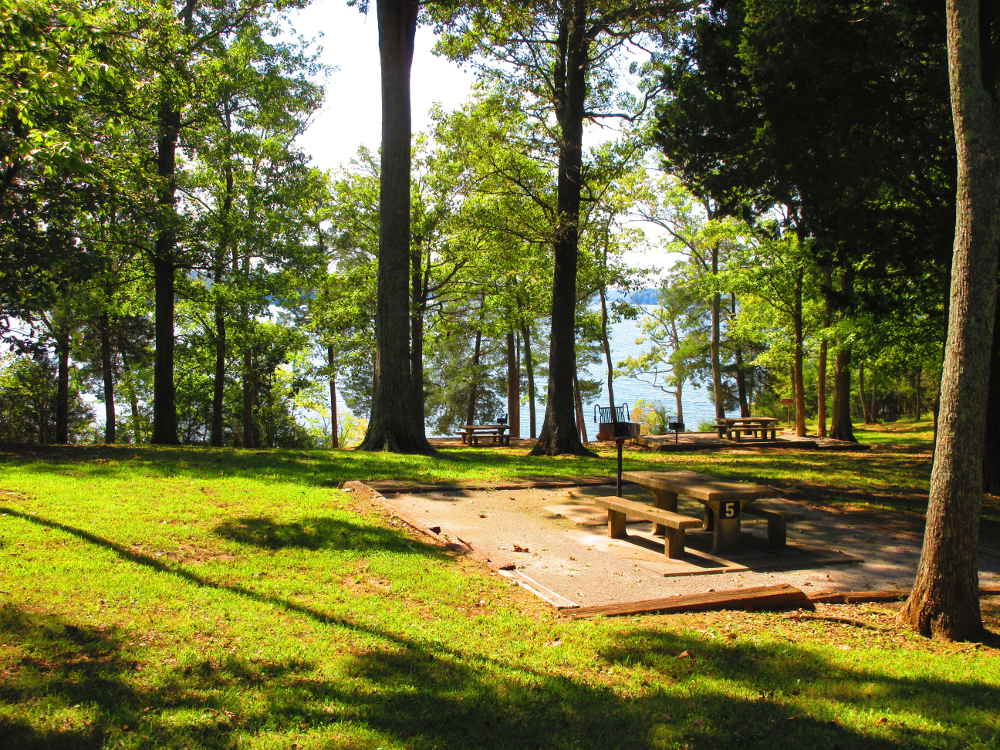Frequently Asked Questions
Below are some of the commonly asked questions about Percy Priest Lake including information about boating, fishing, hunting, swimming, camping, picnicking and general lake information.
Q: Who was J. Percy Priest?
A: J. Percy Priest Dam & Lake is named in honor of Representative James Percy Priest, who was a high school teacher, coach & reporter/editor for the Nashville Tennessean before he was elected to Congress. He represented Nashville and Davidson County from 1940 until his death in 1956.
Q: When was J. Percy Priest Dam built?
A: Construction began in June, 1963 and was completed in December, 1967. Dedication took place June 29, 1968.
Q: How big is J. Percy Priest Lake?
A: There are about 14,000 acres of water and 22,000 acres of land. It is 42 miles long and there are 213 miles of shoreline.
Q: What rules and regulations govern the land and waters of the lake?
A: The rules and regulations governing public use of the Corps of Engineers water resources development projects are contained in Title 36 of the Code of Federal Regulations.
Q: Where can I ride my ATV?
A: You may not ride an ATV anywhere on public lands on J. Percy Priest Lake. More details on the prohibition can be found in Title 36, Rules & Regulations Section 327.2 (a. & c.).
Q: Can I have fireworks?
A: No. Fireworks, along with explosives, firearms and other weapons are prohibited on government property.
Q: Where can I rent a boat?
A: There are four commercial marinas on J. Percy Priest Lake that provide a variety of services.
Q: Are there any trails on J. Percy Priest Lake?
A: Yes! Visit the Visitor Center to obtain a trail brochure or check the Corps of Engineers website.
Q: What is an America the Beautiful Senior / Access Pass? How can I get one?
A: The America the Beautiful – National Parks and Federal Regulations Lands Senior and Access Passes replace the Golden Age and Golden Access Passes, respectively. Both passes grant 50% discounts on some fees charged for facilities and services such as camping, swimming, boat launch, and specialized interpretive services.
Q: Where is the best place to fish?
A: Fishing generally is best in early spring on the upper end of the lake for game fish such as bass, crappie, rockfish, and hybrid. Get yourself a good map of the lake and use it to learn areas of the lake to fish. As weather warms, bluegill and catfish can be caught as well; while other game fish such as bass can be caught at night. Crappie can be caught trolling during the summer months, or can be found over standing timber in 20-30 feet of water. Fall is a great time to fish as water temps begin to fall, boating traffic is lighter, and the fish begin to bite again.
Q: Where can I go bank fishing?
A: A number of good bank fishing locations are provided around J. Percy Priest Lake, including established enhanced bank fishing areas at Stewart Creek, Vivrette Creek, Cook and JPP damsite / overlook. There are also a number of locations around established recreation areas that provide bank fishing access.
Q: How do I find out about temperature and generation schedule?
A: You can call the Fishing Information line and receive daily information Monday through Friday at 615-883-2351. The TVA Lake Information Line is updated daily at 1-800-238-2264. Press 4, then 48 for discharge and generation schedules.
Q: Do you allow private boat docks?
A: No private boat dock permits are issued at J. Percy Priest Lake.
Q: Can I place brush, stakebeds, Christmas trees, etc. in the lake for attracting fish?
A: Yes, however you must apply for a free permit and follow some guidelines. You may not cut live vegetation or standing dead trees for your attractor material. You may not use pressure-treated wood. For more information contact Resource Manager’s Office at 615-889-1975.
Q: Can I hunt on Public Property?
A: Yes. Hunting is permissible on government property during the regulated hunting season. Areas that are restricted to hunting include developed parks and recreation areas, commercial marinas, Long Hunter State Park and Hamilton Creek Park in their entirety. Other conditions apply. Please visit the website https://www.tn.gov/twra/hunting/wildlife-management-areas.html.
Q: Do I need a permit to camp on the islands?
A: No, but you must camp on designated islands and at designated sites. There are no reservations available for these sites; they are first-come, first-serve with a 14 day maximum stay within any 30 day period.
Q: Can I have a campfire on shoreline of the lake?
A: Title 36 states that “Fires shall be contained in fireplaces, grills, or other facilities designated for this purpose.” Open burning along the shoreline, including pits constructed of shoreline rock are generally prohibited. Portable grills and similar devices are allowed.
Q: Are there campgrounds on J. Percy Priest Lake?
A: Yes. J. Percy Priest offers three campgrounds that are reservable (for a fee) from spring to fall every year. Reservations can be made through the National Recreation Reservation Service at www.recreation.gov.
Q: Can I swim in the lake? Are there any beaches?
A: Yes! J. Percy Priest Lake offers swimming areas at Anderson Road Day Use, Cook Day Use, Nashville Shores, and Bryant Grove within Long Hunter State Park. The public use of established swim beaches is encouraged. Swimming or jumping from man made structures such as beaches is prohibited.
Q: Does the Corps of Engineers charge fees at parks around J. Percy Priest Lake?
A: Yes, there is a day use charge at Cook and Anderson Road day use areas. There is a nominal fee per vehicle. Annual passes are available. Please check with the park or visitors center for all official pricing.
Q: Can I reserve a picnic shelter at the recreation areas?
A: Yes. Seven shelters are reservable for a fee up to 360 days in advance at Anderson Road, Cook, Smith Springs, Seven Points, and Jefferson Springs. Reservations may be made through the National Recreation Reservation Service no less than four days before your picnic date. Shelters are available for reservation from early April until late September.


